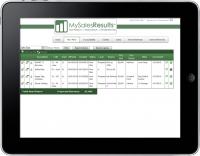Thank you for attending Take Your Agency to the Next Level 2010, presented by SMART I.T. Services! Check out some photos below from this seminar that took place on April 29-30, 2010.
SMART Blog

An online threat becoming more and more problematic is fake anti-virus and anti-spyware software pop-ups. You may have run into these malicious pop-ups when you're surfing online. A seemingly legit pop-up appears saying, "Your Computer Has Been Infected!" The pop-up prompts you to click it to buy software to rid your computer of the infection.
However, clicking on the pop-up actually installs malware that it claims to be helping you protect against. The malware can compromise your personal data, make your PC extremely slow or unusable, and more. Worse yet, if you proceed to buy the software that the pop-up presents you, your credit card information falls into the hands of thieves.
Here are some things you can do to protect yourself:
• Do NOT click on any pop-up that advertises anti-virus or anti-spyware software, especially a program promising to provide every feature known to mankind. In general, do not click on any pop-up advertisements, as many of them are malicious.
• Use ALT + F4 to close a pop-up window... this is the only safe method for closing one.
• If a virus alert appears on your screen, do NOT touch it. Do not use your mouse to eliminate or scan for viruses, and DON'T use your mouse to close the window. Contact SMART Services immediately. Clicking anywhere on the pop-up will allow the software to install itself.
• Never open an email attachment unless you are POSITIVE about the source.
• Do not download freeware or shareware.
• Avoid questionable websites. Some sites may automatically download malicious software onto your computer.

Get your first-hand look at both by joining us for “Exploring Windows 7 and Office 2010,” our free webinar on July 28, 2010. You will get to see the new features of Windows 7 that can help your agency increase productivity, enhance communication, improve security, and more. You will also get a peek at Office 2010 to see all that it has to offer.
Date: Wednesday, July 28, 2010
Time: 10 AM - 11 AM EST
Register: https://www2.gotomeeting.com/register/644177642
Malicious online pop-ups are becoming more and more complex, making it harder for everyday users to decipher what is legit and what is harmful. These pop-ups go so far as to trick you into installing malware on your computer, potentially compromising personal and company data while making your computer run slow.
This webinar recording provides you with guidance for preventing the installation of malware on your computer.

The longest running state agent technology conference in the nation, Great Lakes Automation Day (GLAD) was presented by the Michigan Association of Insurance Agents on November 11, 2010.
The event drew over 150 agents to hear presentations from agents on the leading edge of technology, carrier technology representatives, agency IT leaders, and more. GLAD’s day-long format was topped-off with numerous vendor booths and wonderful networking opportunities.
Steve Brooks of B & B Premier Insurance Solutions kicked off the day with his keynote presentation regarding the latest tools and opportunities for agents to grow their personal lines business, despite intense competition from captive and direct agents.
Mike Steger, Communications Manager at Michigan State University, followed with a fast-paced session that highlighted 45 technology tips in a mere 45 minutes. His presentation included a slew of websites and resources, most of which are free to agents, which can be used for improving online presence, productivity, and more.
After two additional sessions and a delicious lunch, Jerry Fetty took the Kellogg Center stage to present Mobile Computing Today. Jerry discussed the latest developments and reviewed a variety of devices, emphasizing the need to understand how agents plan to work remotely in order for them to select the mobile platform and device that will allow them to be the most productive.
A concurrent Michigan NetVU user group meeting rounded out the information-packed day.
Thank you to everyone who stopped by the SMART I.T. Services and MySalesResults booths and congratulations to Ashley Whitney of Harbor Brenn Insurance Agency, winner of our raffle for an Archos 2.8 internet tablet device. We hope to see you all again at the MAIA’s Annual Convention on February 22-24, 2011 in Mt. Pleasant, Michigan!

The Health Information Technology for Economic and Clinical Health (HITECH) Act, passed as part of American Recovery and Reinvestment Act of 2009 (ARRA), calls for protected health information (PHI) to be rendered unreadable and unusable.
Encryption is a logical and easy way to protect client information sent via email. There is a lot of confusion on the subject, so we have setup a page on our website with more information about HIPAA and HITECH compliance.
While you're there, you can learn about the solution we offer to help you achieve compliance.
Learn more.
We all have our preferences when it comes to how we work. Our Microsoft Outlook settings are no different.
Many people like to have their inbox set up with the reading pane to preview emails at a glance without fully opening them. This is a common practice that, unfortunately, opens up users for unwanted viruses and threats via email.
Emails sent to your inbox containing viruses or malware will install the threats when the emails are viewed in the preview pane, whether or not you've fully opened them or not.
To avoid this potential danger, simply turn off your Outlook reading pane. To do this, go to View > Reading Pane > Off.
This should be done for Outlook Web Access as well because the threat is the same.

Here are some basic steps you can take to improve the security of your iPad.
Configure mobile devices securely.
Some simple configurations can aid in the security of your iPad. Enable password authentication, ensure SSL protection is enabled, utilize remote wipe capabilities, and avoid using auto-complete features that remember user names and passwords.
Connect to secure Wi-Fi networks.
Avoid joining unknown Wi-Fi networks.
Update mobile devices frequently.
Be sure to maintain up-to-date software including operating systems and applications.
Utilize anti-virus programs and configure automatic updates if possible.
Just as your PC should have a proper anti-virus solution, your mobile devices should be equipped with anti-virus protection where possible.
Use an encryption solution to keep portable data secure in transit.
If confidential data must be accessed or stored, make sure users have installed an encryption solution.
Properly wipe devices and dispose of properly.
Get your device properly wiped – don’t just pitch it!
Develop guidelines for acceptable iPad and mobile device usage.
Additionally, there are solutions that allow you to secure and manage multiple devices that include functionality like device tracking, profile management, and preventing unauthorized app downloads. One such solution is SMARTmobile Security from SMART I.T. Services. Contact us to learn more about how to secure your mobile devices and make managing them a breeze with SMARTmobile Security.
 We live in a world where money is the solution to all problems. If you have a problematic piece of technology, what do you do to fix it? You can call in the professionals, or shell out for new hardware or software. Either way, you’re spending money, but the difference in how much you need to spend depends on the policies your IT support budget specifies.
We live in a world where money is the solution to all problems. If you have a problematic piece of technology, what do you do to fix it? You can call in the professionals, or shell out for new hardware or software. Either way, you’re spending money, but the difference in how much you need to spend depends on the policies your IT support budget specifies.
 While it might be nice to imagine making $500 a day by working from home, this is the type of thing only really seen in a website’s spam comments. If these annoyances are common, know that you’re not alone. Even the most innocent sites can be stricken with this issue. So, how can you minimize spam comments?
While it might be nice to imagine making $500 a day by working from home, this is the type of thing only really seen in a website’s spam comments. If these annoyances are common, know that you’re not alone. Even the most innocent sites can be stricken with this issue. So, how can you minimize spam comments?



